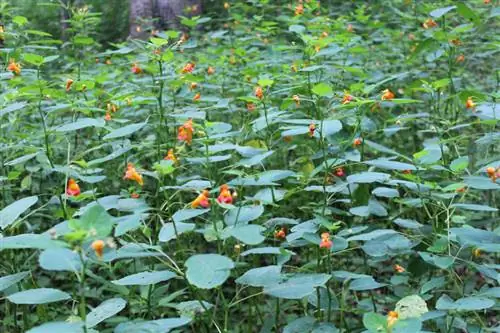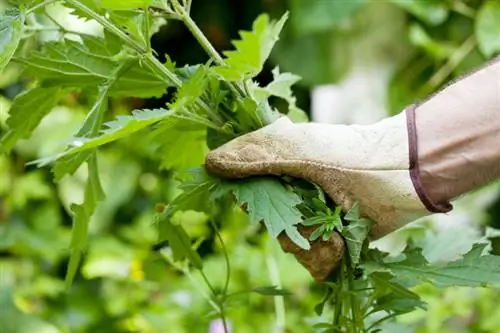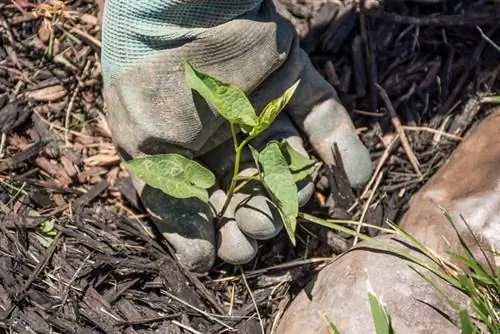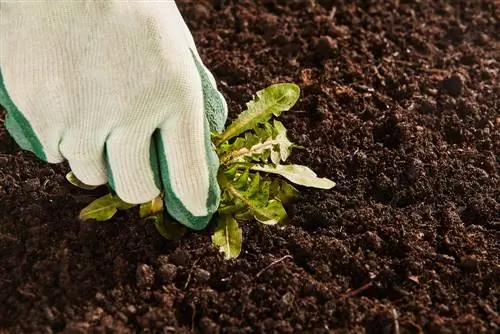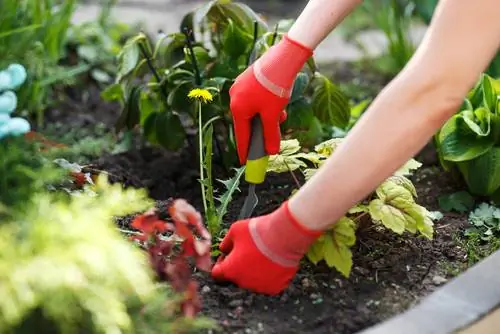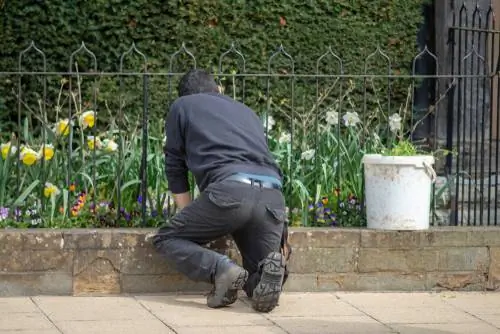- Author admin leonars@hobbygardeners.com.
- Public 2023-12-16 16:46.
- Last modified 2025-01-23 11:20.
The glandular balsam or also known as Indian balsam dies in winter, but its seeds survive and with it it becomes an annoying weed. How can it be combated effectively and permanently?
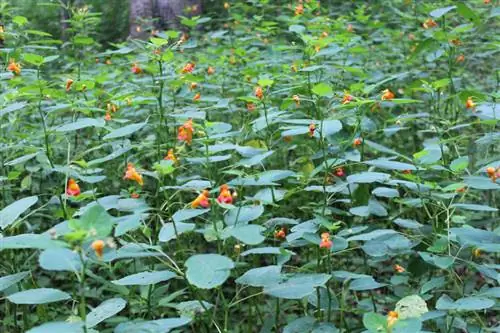
How can balsamweed be combated effectively and permanently?
To combat jewelweed effectively, you should pull it out manually before the seeds ripen, mow or scythe large stands and dispose of the waste with household waste. Avoid chemical control methods and prevent the spread through regular inspection and careful location selection.
Why should you fight jewelweed quickly?
Whether in the garden or on bank areas throughout Germany - this balsam causes a commotion. Why actually?
- Neophyte
- displaces native plants
- can grow quickly (weeds)
- Seeds can germinate for many years
- is poisonous
Fight before seeds ripen
Impatiens should be controlled in spring until July at the latest. Its flowering period begins in July and the seeds will appear shortly afterwards. This must be avoided! Once the seeds are ripe, they will soon be catapulted out of the capsule fruits as projectiles and scattered in all directions.
Manual control
The best method for controlling jewelweed is to pull out the entire plant. This is usually easy - especially if the soil is moist - if there are only a few plants. Balsam has shallow roots and the small roots can be easily removed. Tear out the plant by grabbing the stem at the bottom and pulling firmly.
Mowing or scything large stands
If there are large populations that you want to destroy, it is better if you mow or scythe the plants. Never dispose of waste in the compost, but always in household waste. Otherwise the seeds will survive and spread later.
Chemical control
Chemical control of jewelweed is not recommended. On the one hand, the jewelweed is easy to remove manually and only its seeds are 'dangerous'. On the other hand, herbicides harm the environment, especially when they are used at the edge of water and are carried away by the water.
Prevent spread
Since it can sometimes take several years until the jewelweed has been effectively and 100% controlled (the edible seeds can germinate for many years), it is recommended to prevent its spread:
- do not plant near water
- do not sow outdoors
- cut before seeds ripen
- carry out regular inspections
Tip
It has proven useful to starve the jewelweed. Its nutrient requirements are extremely high. Never fertilize the plant and it will eventually die.

